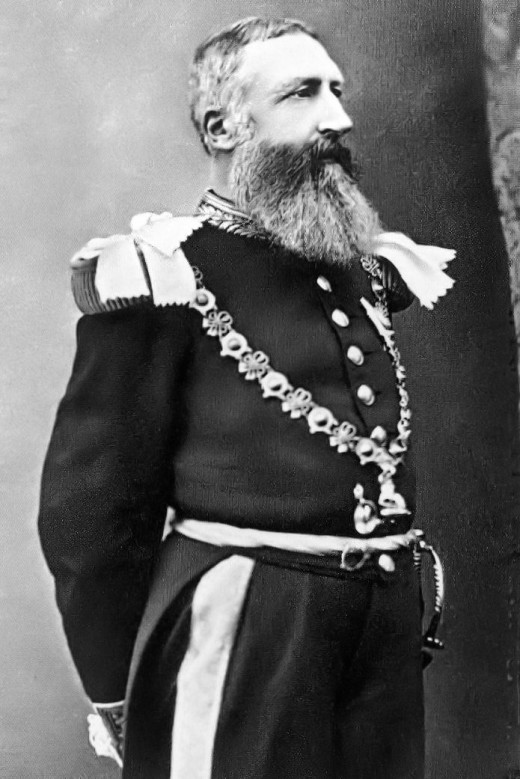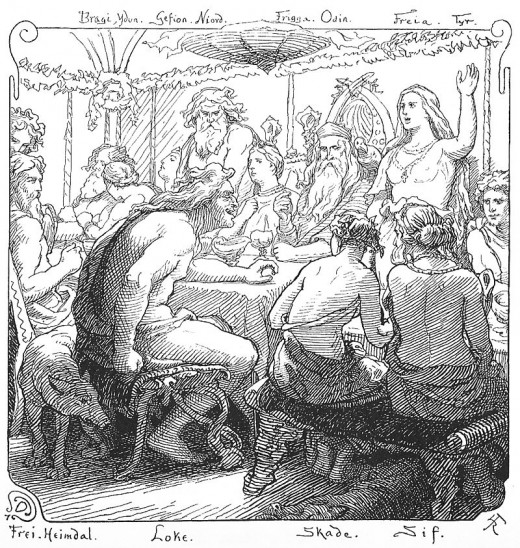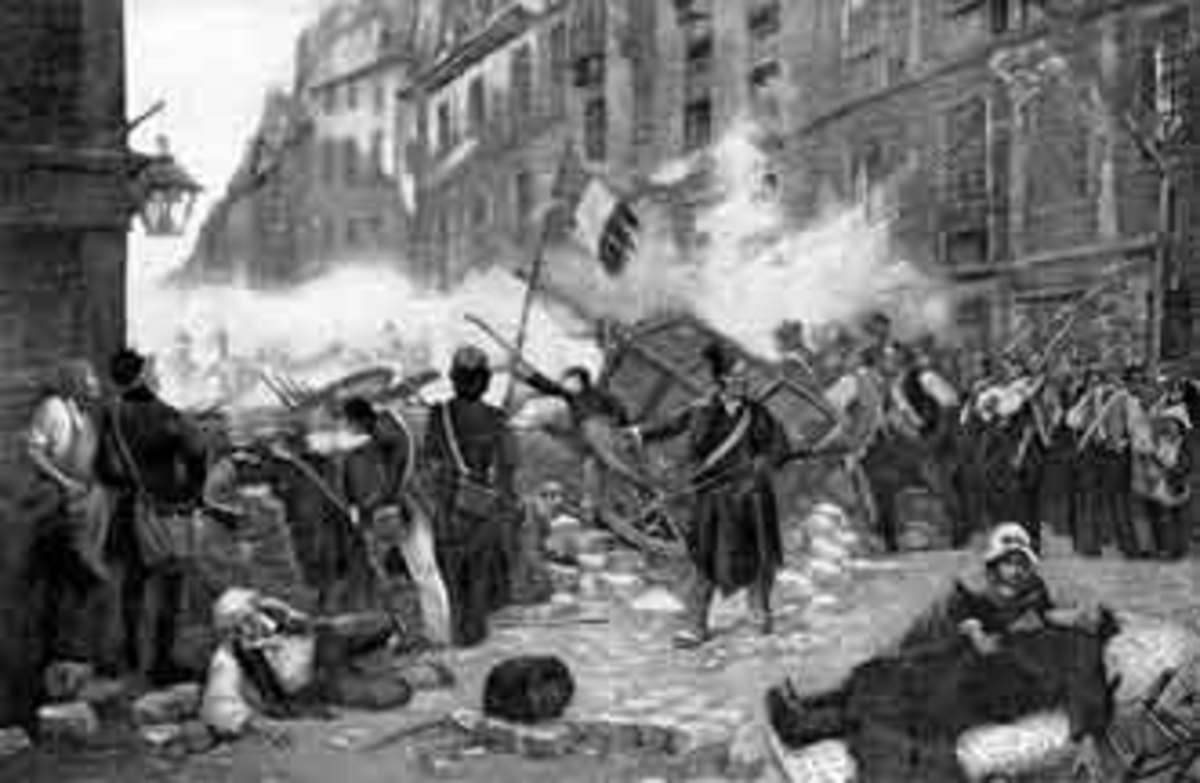4 More Interesting History Facts
History is a fascinating subject. What we know from history is usually told by the winners of a conflict. We get a narrowed view of a people, either told by themselves through records, or what they tell us about others. Thanks to some people who go out looking for answers, we now know so much more than before. Some things we learn we can prove through scientific data and research, and others still need more evidence. The point is, we learn new things about the world almost everyday. Here are five more interesting history events.
Exploitation of the Congo

The continent of Africa has some amazing history. A lot of that history is quite tragic. One notable event was the exploitation of the Congo by King Leopold II of Belgium. Through the use of native slave labor he grew Belgium, but in the process around 10 million Congolese died.
King Leopold II was born April 9, 1835. The year before he was born his older brother passed, leaving him as the only heir to the throne. At age nine he received the title Duke of Brabant. At that tender age he was also given position as sub-lieutenant of the army, and served in the army until he ascended to the throne. In 1855 he joined the Belgian senate where he became interested in trade and the acquisition of colonies. Before he became king he traveled around to Egypt, China, India, and along the Mediterranean side of the African coast.
Leopold thought that having a colony for Belgium was the only way to make the country great. When attempts to acquire a colony as king failed he turned to find one as a private citizen. With the help of Henry Morton Stanley, the famous explorer, Leopold was able to claim the Congo for himself. The extraction of rubber and ivory from the Congo made Belgium a wealthy country. With this wealth Leopold became known as "The Builder King" because of the amount of buildings he commissioned. Leopold was supposed to use this wealth to help enrich the Congo and improve the lives of the Congolese. He ignored these conditions and exploited the native labor. Many died from forced labor, smallpox, and sleeping sickness. The true number is unknown, but academics estimate the number of deaths around 10 million.
The Belgian government, in the light of the scandal, forced Leopold to withdraw from the Congo, where they became independent. Belgians try to forget the atrocities that happened in the Congo by remembering Leopold as the "builder king" but he is a controversial figure in the Congo.
The Original U.S Flag Salute

"I pledge allegiance to the flag of the United States of America, and to the republic for which it stands, one nation under God, indivisible, with liberty and justice for all."
This is the well known pledge in the U.S. This is not how it always looked. It used to be quite a bit shorter. When reciting the pledge one places the right hand over your heart. The hand on the heart was not the original salute to the flag either.
The creators of the pledge and the salute were Francis Bellamy and James B. Upham. Both worked for a family owned publication called The Youth's Companion. The publication was starting a campaign in 1892 to fly flags over every school in the country. Bellamy waned to capture the spirit of America in his pledge, but he was also racist against immigrants that he felt couldn't assimilate. His original pledge was thirteen words meant for those who he felt were truly American. “I pledge allegiance to my Flag and the Republic for which it stands; one Nation indivisible, with Liberty and Justice for all.” Upham came up with the salute, which was close to what the Romans used to use. It was a raised arm, like what the Nazis started using. Originally, Upham wanted the palm of the hand facing up toward the flag, but found that position uncomfortable, so changed it to palm down. The pledge and salute was revealed at the 400th celebration of Columbus Day in 1892.
Bellamy was an interesting individual, draped in contradiction. He was once a minister in a Baptist church. He was also a socialist, and founded the Christian Socialist. He taught that Jesus was a Socialist and that to live a righteous life they needed to give up the evils of Capitalism. He was an activist in his community for public education, nationalism, and the Christian Socialists.
The Fascist leaders Mussolini and Hitler began using similar salutes in the 1920's and 30's. Before the U.S. joined WWII there were groups of interventionist who would photograph those who were oppsed to the war doing the Bellamy Salute, but left out the American flag. This was a type of propaganda used to persuade isolationists to go to war. It would look indistinguishable from the Nazi salute. To quell the confusion the U.S. Congress changed the flag code to have the right hand over the heart in December 1942.
Over time the words "My Flag" changed to "to the flag of the United States of America." In 1954 the words "under god" were added as well, and is still a controversy to this day, in terms of separation of church and state.
Ancient Origins of the Rap Battle

The idea of poking fun at someone to blow off steam has been around for quite some time. Putting those insults into a poetic form to make it more challenging has been recorded as far back as the 5th century. Our modern day rap-battles come from the original form called Flyting.
In the 5th century stories of the God Loki Flyting with the other gods, particularly Odin in disguise and Freya. Examples of the gods Flyting can be found in the poems Lokasenna and Hárbarðsljóð.
The Anglo-Saxon's would host Flyting contests in their feasting halls. It was all in good fun, and the winner would down a drink and invite the loser to drink with him. In the 15th century Flyting became a public spectacle in Scotland. Even though profanity was a punishable offense it could be used freely in a flyte. The first record of the word shit was recorded in a flyte witnessed by James IV.
Even William Shakespeare had Flyting in his tragedies. Ajax: Thou bitch-wolf's son, canst thou not hear? Feel then.Thersites: The plague of Greece upon thee, thou mongrel beef-witted lord!William Shakespeare, Troilus and Cressida, Act 2, Scene 1.
Modern day freestyle rap-battles are the closest we have to Flyting. They are very similar in that you have to be clever, there's usually quite a bit of profanity, and you go head to head with someone.
Ancient Pregnancy Test

Pregnancy is a natural process to create the next generation. Women have created many methods of testing if they are pregnant or not. Modern day women have the opportunity to buy a pregnancy test from a store, but what did our ancestors use?
The earliest recorded form of a pregnancy test is on an ancient Egyptian papyrus. It describes a woman peeing on wheat and barley seeds. It was 70% successful. The different seeds were used to predict the gender of the baby. If the barley grew it was a boy, if the wheat grew it was a girl.
This was tested in 1963 to see if it worked. That's why we know it worked 70% of the time. Most of the time the seeds would grow if a woman was pregnant. The seeds didn't grow when non-pregnant women and men performed the same test. The theory was that estrogen levels in the pregnant women is what caused the growth.
© 2018 Lindsey Weaver






